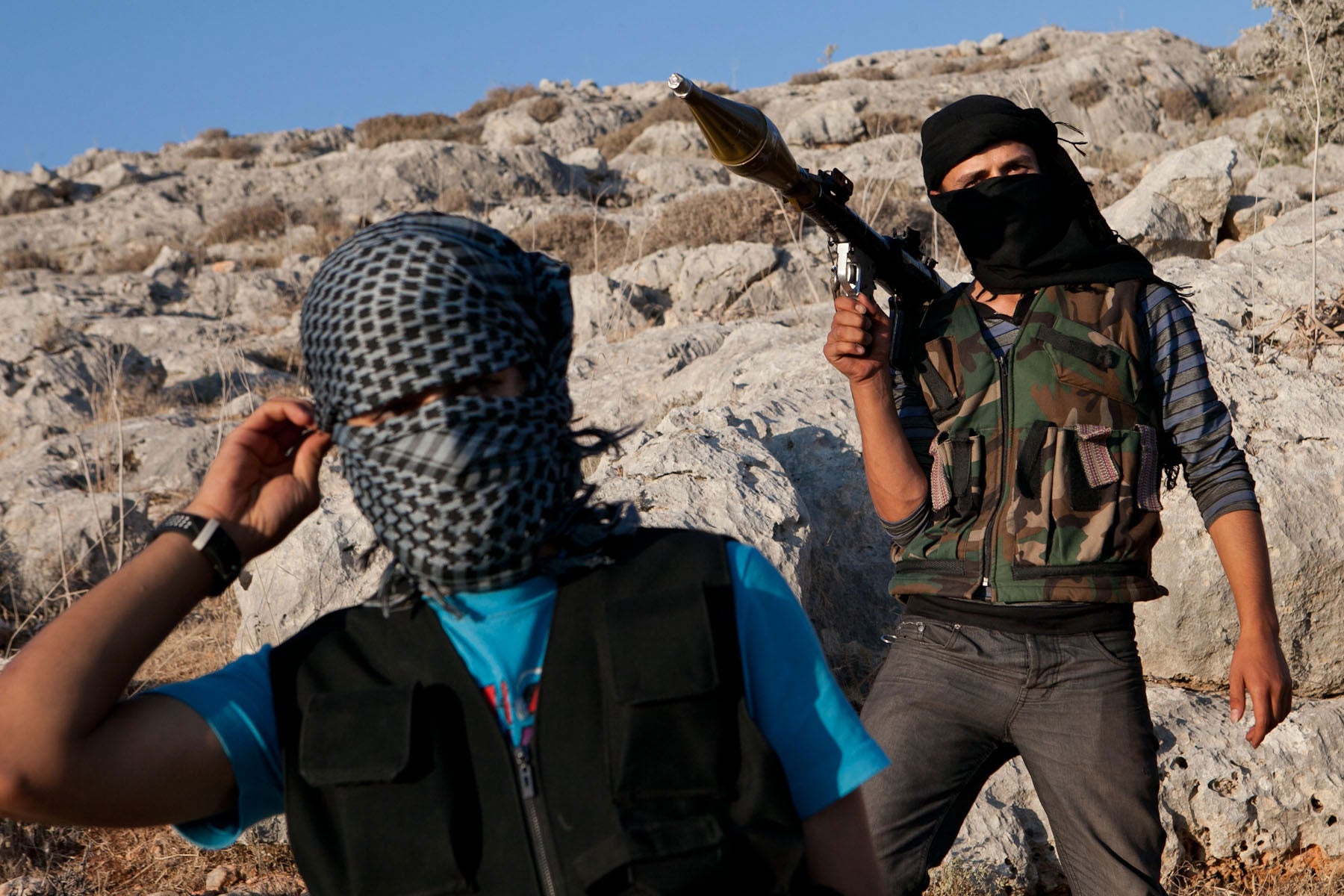The Independent's journalism is supported by our readers. When you purchase through links on our site, we may earn commission.
If Syria's rebels can't take The Fortress, how can they take the capital?
Scattered throughout the rebel-held north are military installations that government forces have managed to defend, and from which they can launch attacks

Your support helps us to tell the story
From reproductive rights to climate change to Big Tech, The Independent is on the ground when the story is developing. Whether it's investigating the financials of Elon Musk's pro-Trump PAC or producing our latest documentary, 'The A Word', which shines a light on the American women fighting for reproductive rights, we know how important it is to parse out the facts from the messaging.
At such a critical moment in US history, we need reporters on the ground. Your donation allows us to keep sending journalists to speak to both sides of the story.
The Independent is trusted by Americans across the entire political spectrum. And unlike many other quality news outlets, we choose not to lock Americans out of our reporting and analysis with paywalls. We believe quality journalism should be available to everyone, paid for by those who can afford it.
Your support makes all the difference.It was still dark when we set off in the early hours of the morning, in September last year. We were driving south on the road between the border town of Azaz and Aleppo. Our guide was driving slowly, deftly navigating the potholes in the road while we grew drowsy in the back seat. There were no other cars on the road, and no one had spoken for half an hour when he dimmed the car’s headlights, pushed his foot on the accelerator and announced very matter-of-factly: “By the way, you should be careful to watch out for sniper bullets along here.”
It wasn’t the absurd instruction that bothered me most (how exactly is one supposed to watch out for a bullet fired from the darkness?) but the fact that we were deep inside rebel-held territory, travelling with the Free Syrian Army. Who would be shooting at us here, in liberated Syria?
“There is a government air base over there, they sometimes take shots at cars if they are on the road at night,” he added, in response to our bemusement.
The Menagh Air Base, as I later discovered it was called, is one of several military installations still under government control that are scattered across the north.
The rebels hold a large swathe of territory reaching to the north and west of Aleppo, as far as the Turkish border, but they have been unable to capture a number of these bases in their heartland. These islands of military power, surrounded by rebel forces, are vital to the government. It is from the Menagh base that helicopters take off to bomb rebel fighters on the ground in Aleppo and attack civilians queuing in bread lines in northern towns.
That the government has been able to retain control of these bases has been a cause of frustration to those fighting to oust Bashar al-Assad.
“We have tried everything to take it, believe me,” our guide said of the Menagh base. “If any fighter from any brigade has a good idea of how to take the base, they get to try it out, no matter how crazy.”
The base is a sprawling walled compound with a clear view of the main road leading into Aleppo. To the untrained eye it is a nondescript compound, but the rebels talk of it with foreboding.
“We call it The Castle,” he added. “No, wait, what do you call the building that cannot be broken? The Fortress! We call it The Fortress,” our guide explained.
Rebels have intensified their attacks on these bases in recent months. In November, following a 50-day siege, fighters overran the base of the army’s 46th Regiment at Aterab – a major garrison of government control in Aleppo. Just two weeks ago, the strategically important Taftanaz airbase near the town of Idlib was finally taken after a siege that had lasted for months. But even after the rebels have forced the army out, they struggle to hold on to the bases. Government warplanes bombed Taftanaz after it was lost, and similar tactics have been used elsewhere.
The house we stayed in that night was only a few miles from Menagh. The thud of artillery fire carried on throughout the night and jets roared overhead as they repelled rebel attacks. It was clearly not for lack of trying that the base is still in government hands.
That fight is continuing today. According to the rebels, a “final battle” is currently underway to take Menagh.
"Once it has been captured, the north will be liberated,” Abu Marwan, the young commander of the rebel Northern Storm brigade, told CNN this week.
Some analysts (and many rebel fighters) claim that Assad is on his last legs, and that the war will soon be at an end. But the rebels’ inability to force the Syrian army out of these bases in “liberated” areas suggests that there are limits to their strength.
If they do win this “final battle,” Assad’s ability to strike at will in the north will be severely weakened. But if they cannot take The Fortress at Menagh, how can they expect to take Damascus, the biggest fortress of all?
Join our commenting forum
Join thought-provoking conversations, follow other Independent readers and see their replies
Comments